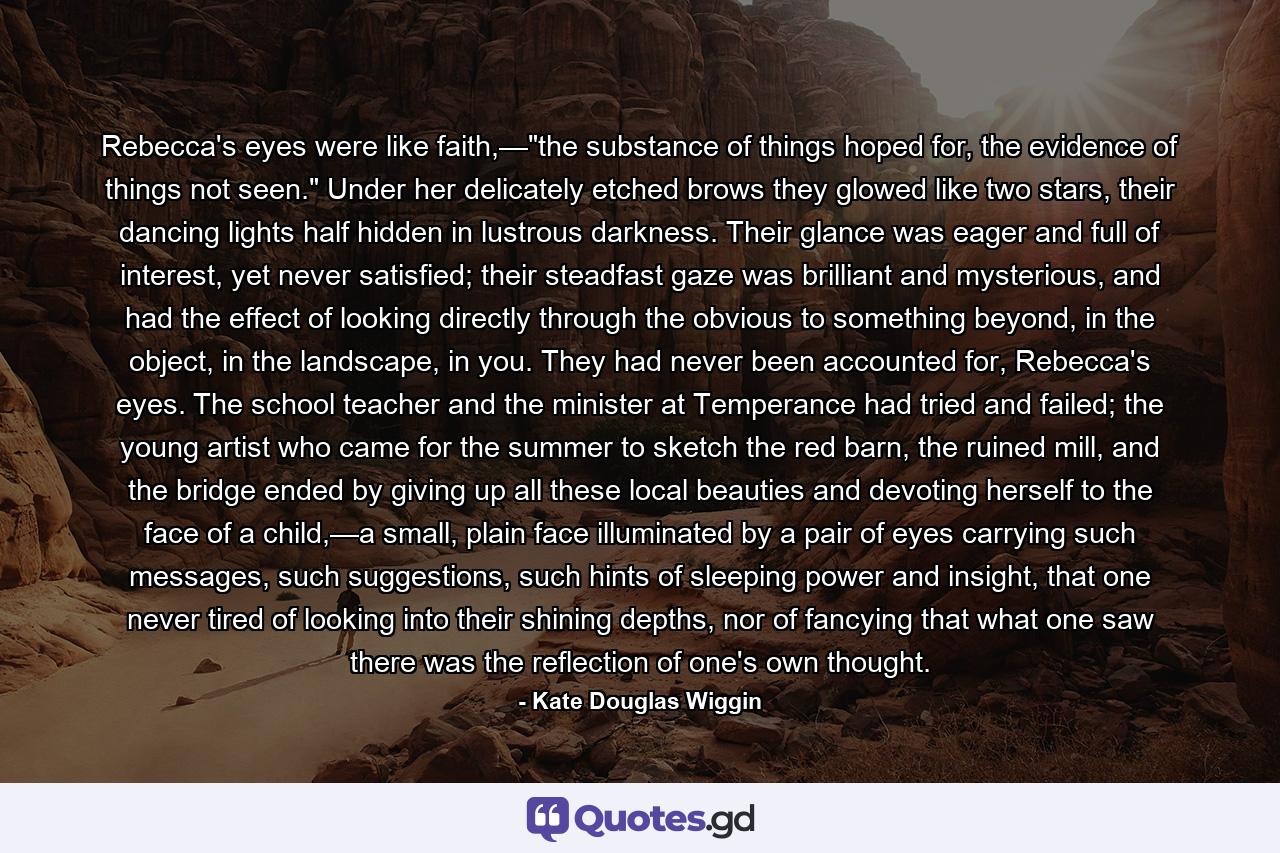Rebecca’s eyes were like faith,—”the substance of things hoped for, the evidence of things not seen.” Under her delicately etched brows they glowed like two stars, their dancing lights half hidden in lustrous darkness. Their glance was eager and full of interest, yet never satisfied; their steadfast gaze was brilliant and mysterious, and had the effect of looking directly through the obvious to something beyond, in the object, in the landscape, in you. They had never been accounted for, Rebecca’s eyes. The school teacher and the minister at Temperance had tried and failed; the young artist who came for the summer to sketch the red barn, the ruined mill, and the bridge ended by giving up all these local beauties and devoting herself to the face of a child,—a small, plain face illuminated by a pair of eyes carrying such messages, such suggestions, such hints of sleeping power and insight, that one never tired of looking into their shining depths, nor of fancying that what one saw there was the reflection of one’s own thought.
